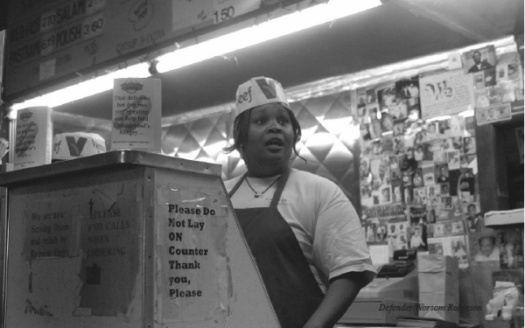
The economy has taken its toll on corporate America, wiping out jobs, reducing revenues and in some cases forcing giants, such as General Motors Corp., into bankruptcy.
The economy has taken its toll on corporate America, wiping out jobs, reducing revenues and in some cases forcing giants, such as General Motors Corp., into bankruptcy. But Fortune 500 companies are not the only ones hurting. Many small, Black-owned businesses are also dogged by the economy and struggle every day to keep their doors open. Robert Shannon Sr., founder and CEO of Bobcat Wood Refinishing, is fighting to stay afloat amid lenders scaling back on financing. “I do what I can to stay alive in this tight economy,” Shannon, 68, said. “I started this business 39 years ago and I am not about to let it die without a fight.” Bobcat, 7745 S. Halsted St., provides furniture-restoration to bedroom sets, tables and chairs, as well as damaged furniture. With just two employees, Shannon said he is survives by keeping his overhead low. “Yes I have to spend money on supplies but I can purchase them wholesale or even at a second hand store, restore it and make it look like new,” he said. “This is what I do. I take old things and make them look good again.” As the CEO he often does not pay himself to ensure he can meet payroll and pay his contractors. Networking has kept a steady stream of customers walking through the door. “God has been good to me. I have been in the right place at the right time to meet people and tell them about my business. And those same people have gone back to tell others about the fine work I do,” he added. Before the economy went soar Shannon would advertise heavily on billboards all over the city especially in impoverished, Black communities. But even that has been scaled back to reduce costs. “Nowadays the bulk of my advertising is word of mouth. It does not get any better than that when you are a small business,” said Shannon. Restaurants are also suffering from the economy as more people are electing to eat at home rather than eat out. Since 1969 Dave’s Red Hot, 3422 W. Roosevelt Road, has been a pillar on the West Side with a customer base that stretches all the way toAlaska. The fast-food restaurant is famous for its beef hot dogs and polish sausages. “We have customers from all over. California, New York, you name it,” said Eugenia Fountain, 35, who manages the family-owned establishment with her mother Shirley. “Like any other cash businesses we have been affected by the economy. Weekly sales have dipped by as much as 10 percent. But sales spike the first week of the month. “The first week of the month we see a lot of business namely because government checks are issued out and people have a tendency to treat themselves to food when they have money,” Fountain explained. To stay afloat Fountain said she has had to reduce working hours for the restaurants four employees, hire a less expensive trash hauler and stop selling bottled water because of the city’s sales tax on bottled water. Other adjustments include reducing the restaurant’s weekly quantity of supplies and picking up some supplies instead of having them delivered. “It’s cheaper to go to Jewel and buy cases of pop than have them delivered by a supplier,” Fountain said. Her dad, the late Eugene Gaines, purchased the eatery, which seats up to 20 customers, shortly after the riots ended on the West Side following the murder of civil rights leader Martin Luther King Jr. in 1968. But the biggest challenge for Fountain has been financing. “We purchased the land next door to us with the hope of expanding but we have not been able to get financing to begin, so the land is sitting idle,” she said. Timothy Snow, a senior loan officer for Bank of America, said businesses could navigate the economy by: knowing the local market and lenders; seeking assistance from government agencies-which typically will have a certain agency designated to help entrepreneurs and small businesses; seeking more asset-based loans when lines of credit dry up; and looking for silent partners willing to invest in the business.


